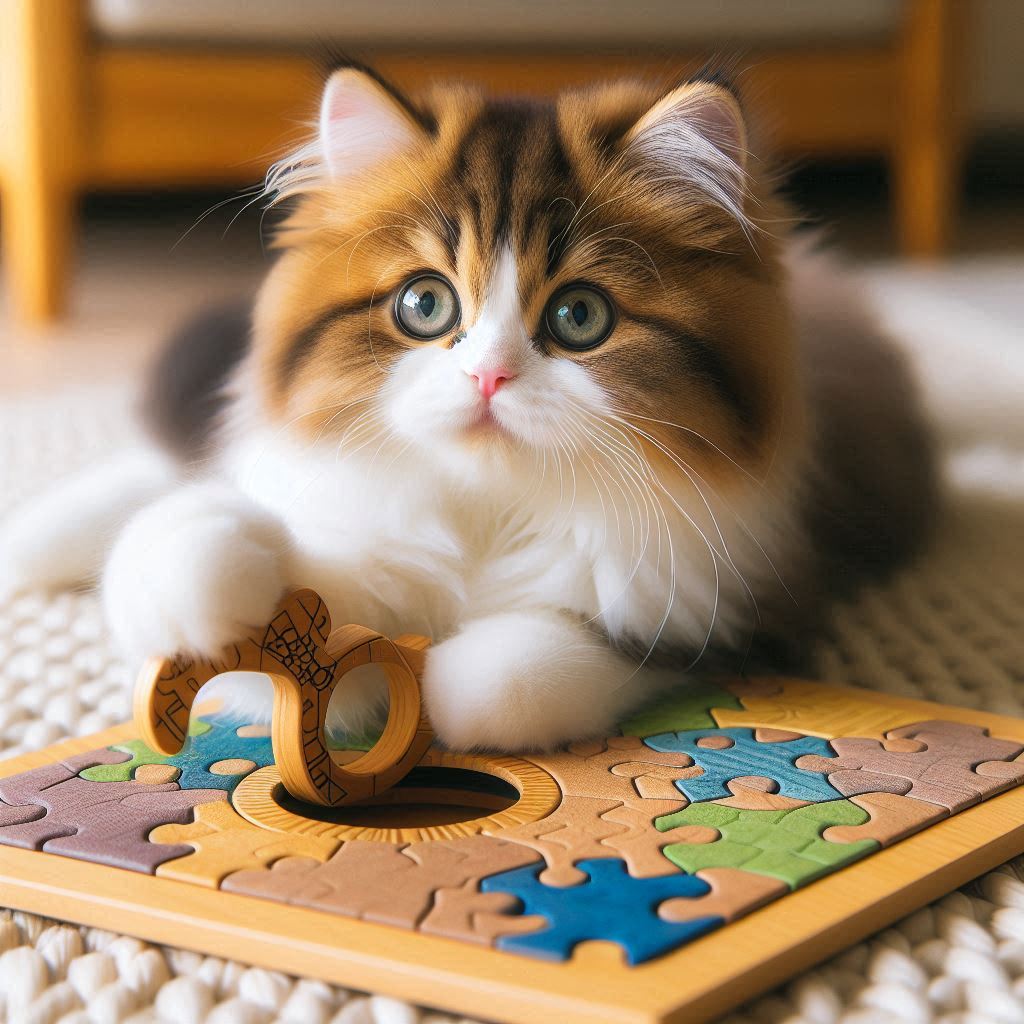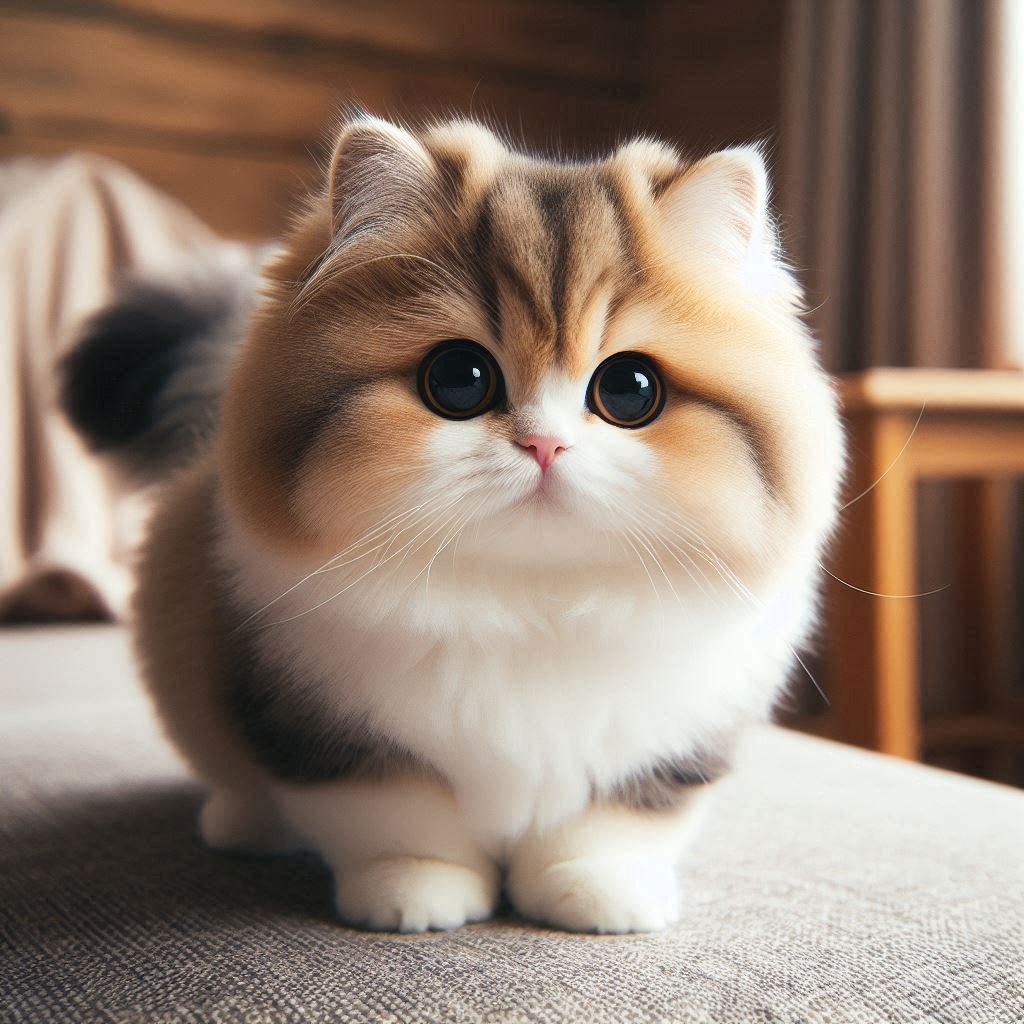The Munchkin cat is a unique and charming breed known for its distinctively short legs and playful, affectionate personality. Though relatively new to the world of cats, Munchkins have quickly gained popularity for their endearing appearance and energetic demeanor. Despite their short stature, Munchkin cats are agile, playful, and make excellent companions.
History and Origins of the Munchkin Cat
The Munchkin cat’s unique trait of short legs is the result of a natural genetic mutation. While short-legged cats have appeared throughout history, the modern Munchkin breed was officially recognized in the early 1990s. The breed gets its name from the small characters in “The Wizard of Oz.”
The breed as we know it today originated in Louisiana, USA, in 1983, when a teacher named Sandra Hochenedel found two pregnant stray cats. One of the cats, named Blackberry, gave birth to kittens with unusually short legs. This genetic mutation was passed down, and over time, breeders worked to establish the Munchkin as an official breed. The breed was officially accepted by The International Cat Association (TICA) in 1994, though it remains controversial in some circles due to concerns about potential health issues related to their short legs.
Physical Characteristics of the Munchkin Cat
The Munchkin cat’s most distinguishing feature is its short legs, which are the result of a natural mutation affecting the length of the long bones in their legs. Despite this, they have a well-proportioned body, and their short legs do not affect their ability to run, jump, or play.
- Size: Munchkin cats are medium-sized, typically weighing between 5 to 9 pounds. They are compact but muscular, with a long body in proportion to their shorter legs.
- Coat: Munchkins come in both short-haired and long-haired varieties. Their coats can be soft and plush, with a wide range of colors and patterns, including solid, tabby, and calico.
- Face and Ears: Munchkins have a rounded head, large walnut-shaped eyes, and medium-sized ears. Their faces give them a curious and sweet expression, adding to their overall charm.
- Legs: The breed’s most defining feature, their short legs, come in varying lengths. These short legs do not limit their mobility as much as one might expect, and Munchkins are known to be agile and active.
Personality and Temperament
Munchkin cats are known for their playful, affectionate, and curious nature. Despite their small stature, they are highly energetic and enjoy interacting with their environment and people.
Affectionate and Social:
These cats tend to be very affectionate and form strong bonds with their human families. They enjoy being around people and are known to follow their owners from room to room. Munchkins are social cats that thrive on attention and companionship.
Playful and Energetic:
Munchkins are lively and love to play. They often engage in chasing toys, exploring their surroundings, and even attempting short jumps. Their short legs may limit how high they can jump, but they are still very agile and quick on their feet.
Good with Families and Other Pets:
Munchkin cats tend to get along well with children and other pets. They are gentle, friendly, and adaptable, making them a great choice for families or multi-pet households.

Caring for a Munchkin Cat
Munchkin cats are relatively low-maintenance when it comes to grooming, but their coat type will dictate the frequency of care.
Grooming
Short-haired Munchkins require less grooming than long-haired ones. Regular brushing helps reduce shedding and prevents matting in long-haired varieties.
Diet and Nutrition
A high-quality diet rich in protein is recommended to support their overall health. Consult with a veterinarian for specific dietary needs.
Exercise and Play
Munchkin cats are active and need regular playtime to keep them stimulated. Feather wands, balls, and puzzle toys can keep them entertained. Providing vertical space allows them to climb and explore, which they enjoy despite their shorter legs.
Health and Lifespan
Munchkin cats are generally healthy and do not suffer from specific health problems related to their short legs. However, there are a few potential concerns:
- Spinal Issues: Some critics of the breed worry that the Munchkin’s short legs could lead to spinal problems similar to those seen in dog breeds like Dachshunds. However, no significant studies have proven this to be a widespread issue in Munchkins.
- Joint Problems: While Munchkin cats generally have no mobility issues, they may be more prone to joint-related concerns due to their shorter legs. Regular checkups with a veterinarian can help detect any potential problems early.
With proper care, Munchkin cats have a typical lifespan of 12 to 15 years.
Munchkin Cats and Their Living Environment
Munchkin cats adapt well to both apartment and house living, as they are indoor cats by nature. Due to their smaller stature, they prefer environments where they can climb or explore without needing to jump too high. Cat trees, scratching posts, and toys that allow for interaction and exercise are great for keeping them entertained.
Despite their shorter legs, Munchkins love to run, chase toys, and play like any other cat. They benefit from interactive play sessions and mentally stimulating activities.
Why Choose a Munchkin Cat?
Munchkin cats are perfect for people who want a playful, affectionate, and social companion. Their unique appearance, paired with their energetic and loving nature, makes them stand out from other breeds. They are adaptable to various living situations and get along well with children and other pets, making them a great addition to families.
Conclusion
The Munchkin cat is a truly unique and endearing breed that captivates cat lovers with its adorable appearance and charming personality. With their playful nature, affectionate demeanor, and distinct short legs, Munchkin cats make wonderful pets for individuals and families alike. Despite their controversial origins, they have proven to be healthy and active companions, bringing joy to homes around the world.



